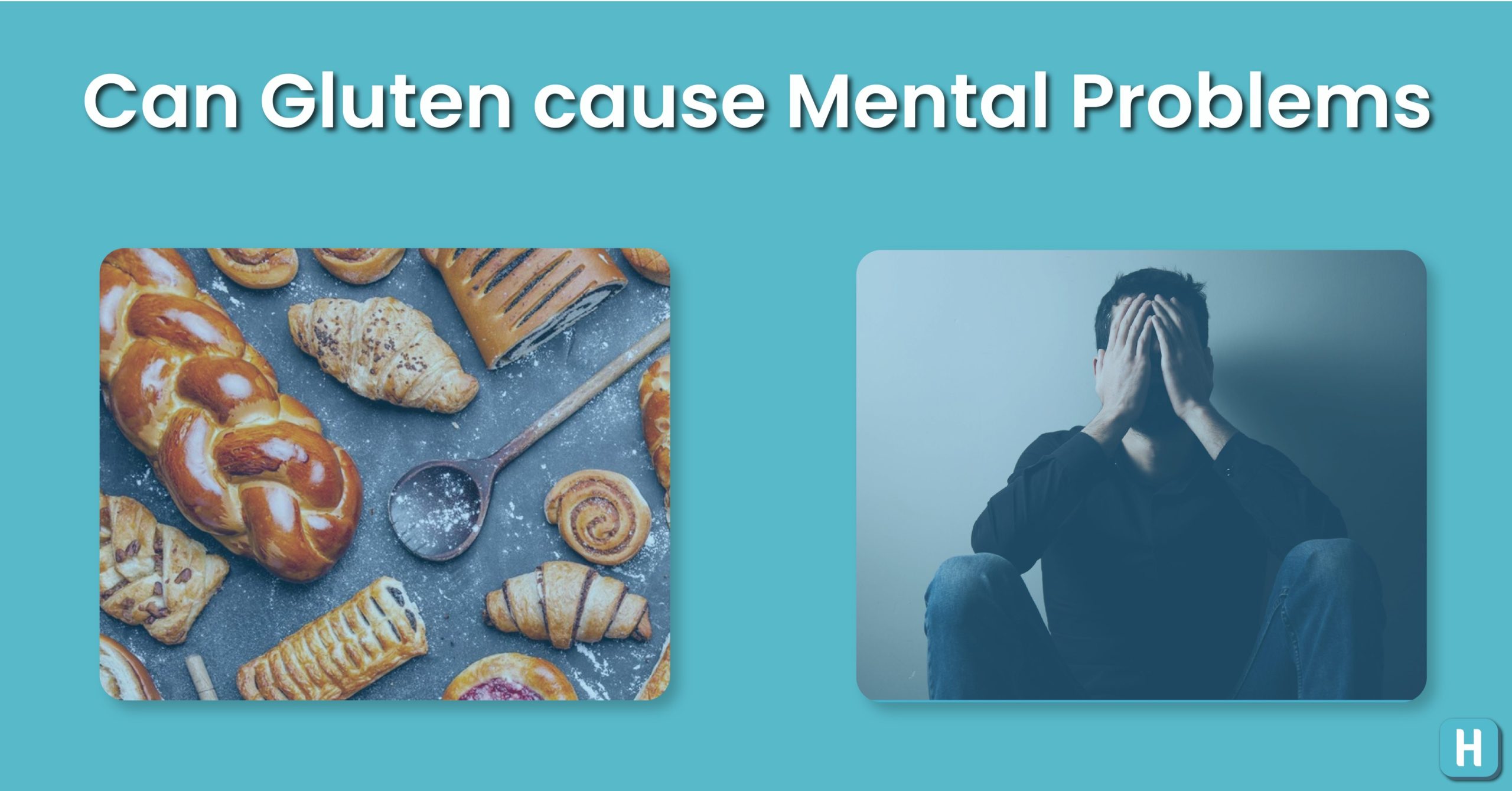Have you ever wondered if the bread you eat could be affecting your mood? It might sound strange, but there’s growing evidence suggesting a link between gluten and mental health issues. It’s not just about digestive discomfort; it could be impacting your focus, mood, and overall well-being. Let’s delve into this connection and see if there’s something you can do to feel better.
Understanding Gluten and Its Impact on Mental Health
Gluten, a protein found in wheat, barley, and rye, is a common culprit for digestive issues. For those with celiac disease, gluten triggers an autoimmune response that damages the small intestine. However, even for those without celiac, gluten sensitivity can cause a range of symptoms, including fatigue, digestive problems, and even mental health concerns.
The Link Between Gluten and Mood

Many people report experiencing mood swings, irritability, and even depression after consuming gluten. While more research is needed, it’s possible that gluten triggers inflammation in the gut, which can affect the brain and influence mood. Think of it this way: your gut and brain are constantly communicating, and when your gut is inflamed, it can send signals to your brain that affect your emotional state.
Nutritional Considerations: The Role of Gluten in Mood Disorders
A healthy diet is essential for overall well-being, including mental health. A diet rich in fruits, vegetables, and whole grains can provide the nutrients your body needs to function optimally.
However, if you’re sensitive to gluten, it’s important to avoid gluten-containing foods to prevent potential negative impacts on your mood and mental health.
Does Gluten Affect Serotonin Levels?
Serotonin is a neurotransmitter that plays a crucial role in mood regulation. Some research suggests that gluten may interfere with serotonin production or signaling in the brain. This could potentially contribute to mood swings, anxiety, and depression. It’s a complex area of research, but it highlights the potential impact of gluten on brain chemistry.
Gluten and Brain Fog: A Foggy Connection
Brain fog is a frustrating experience, making it hard to concentrate, feel confused, and even struggle with memory. This can significantly impact your daily life, making it challenging to focus on work, school, or even simple tasks. While more research is needed, some experts believe that gluten sensitivity might contribute to brain fog by affecting the gut-brain connection and influencing neurotransmitter function.
Exploring the Link Between Gluten and Depression
Depression is a serious mental health condition that can have a profound impact on your life. While more research is needed, some studies suggest a possible link between gluten and depression. It’s thought that gluten may contribute to inflammation in the gut, which can affect the brain and increase the risk of depression.
The Connection Between Gluten and Anxiety

Anxiety is another mental health concern that may be linked to gluten. Have you ever noticed that your anxiety seems to spike after eating certain foods? Some people report experiencing increased anxiety symptoms, such as racing thoughts, restlessness, and difficulty sleeping after consuming gluten. While the exact mechanism is unclear, it’s possible that gluten triggers inflammation in the gut, which can send signals to the brain and contribute to anxiety.
Personality Disorders and Gluten: Is There a Link?
While more research is needed, some studies suggest a possible link between gluten sensitivity and personality disorders. This connection is complex and needs further investigation. It’s important to approach this topic with sensitivity, as personality disorders are complex and often influenced by multiple factors.
Mental Health Services and Gluten Sensitivity
If you’re concerned about the potential impact of gluten on your mental health, it’s essential to talk to a mental health professional. They can help you assess your symptoms, determine if gluten sensitivity is a contributing factor, and develop a personalized treatment plan. Remember, you’re not alone! Many people struggle with gluten sensitivity and its potential impact on mental health.
To learn more about gluten sensitivity and its potential impact on mental health, visit the National Institute of Mental Health website.
A study published in the journal Nutrients found that 87% of individuals with celiac disease reported experiencing anxiety or depression, highlighting the potential connection between gluten and mental health.
It’s important to remember that everyone is different, and what works for one person may not work for another. If you suspect gluten might be affecting your mood, focus, or overall well-being, consider consulting with a doctor or a registered dietitian to explore the possibility of a gluten-free diet. You deserve to feel your best, and understanding the potential role of gluten in your mental health is a great place to start.
Ready to take the next step towards better mental health? Helply offers a range of mental health services, including individual therapy, group therapy, and online resources. Visit our website today and start your journey towards a healthier you!

